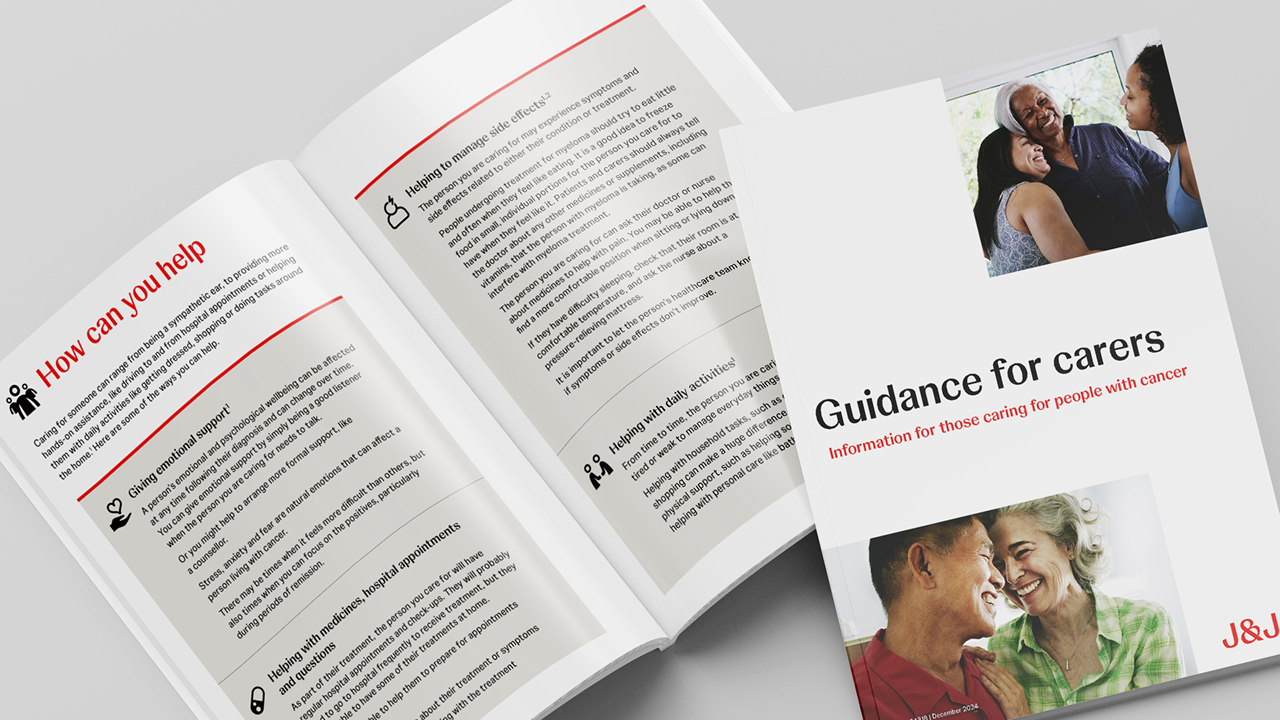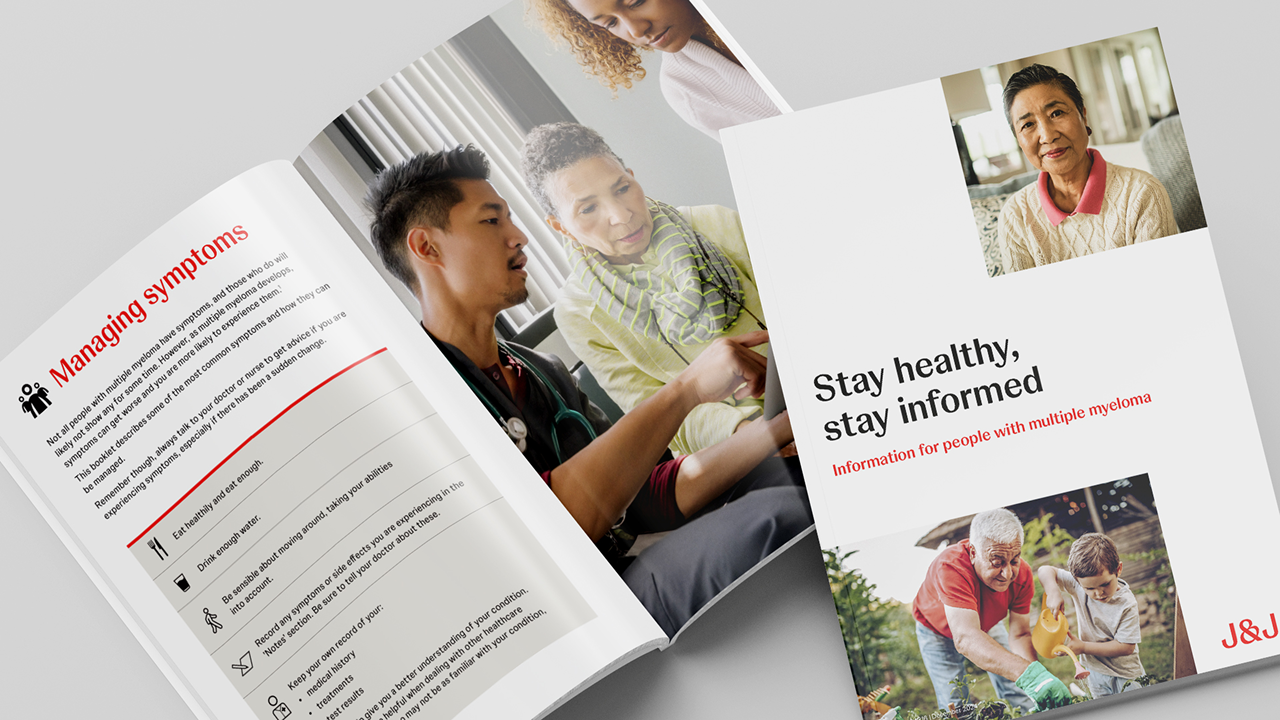Multiple Myeloma

Caring for Someone with Multiple Myeloma
Caring for someone with cancer can be complex and demanding – both physically and emotionally. A carer is anyone who provides help for someone else who is unable to manage without this support. This may be a friend, close relative, or even a neighbour. Most often it is a partner or spouse.
Moving from being part of an equal partnership to a relationship in which one depends on the other for care and support can sometimes be challenging. Carers are not trained to help patients, which makes them different from professionals like nurses or care workers.
Recognising your role and responsibilities as a carer is important. It is the first step you need to take to make sure you get the help you might need now or later on.
It’s also important to recognise that you might need help for yourself in this new role, the first step is usually to talk to your doctor.1 They should also be able to help you identify ways of getting support, whether practical or financial, including local carers’ services and social care support.
For guidance on how you can best help and important information on how to take care of yourself, download the ‘Guidance for carers’ booklet.

Carers guide
It could also help to familiarise yourself with what your friend or family member with multiple myeloma might be going through; download the ‘Stay healthy, stay informed’ booklet here.
